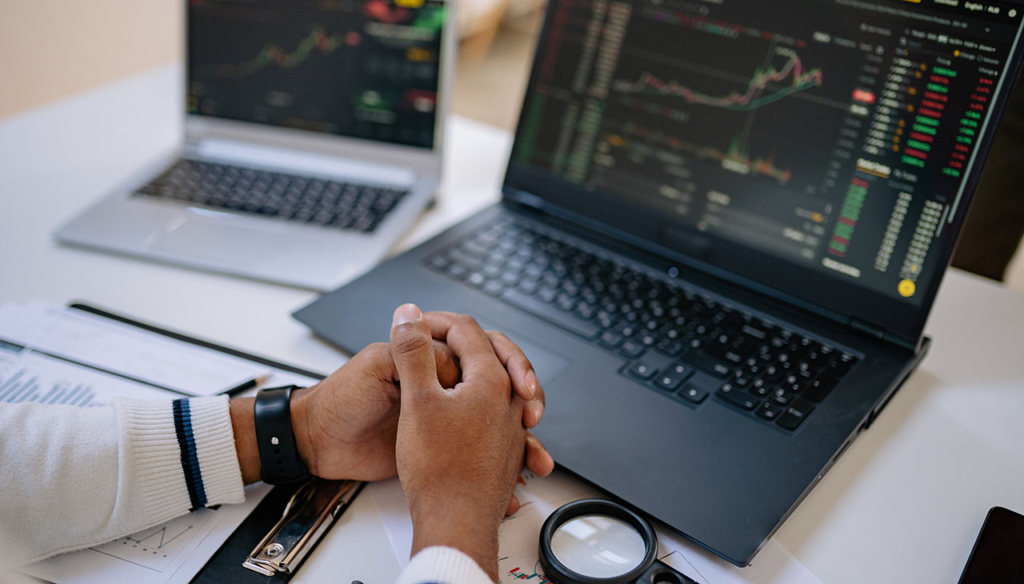
In the fast-paced world of modern finance, technology has become a game changer, especially in the realm of futures trading. By leveraging cutting-edge technologies, traders can make more informed decisions, improve efficiency, and gain a competitive edge. This blog post aims to unveil how technology is reshaping futures trading review practices, making it more accessible and efficient than ever before.
Automated Trading Systems
One of the most significant advancements in futures trading is the rise of automated trading systems. These systems use algorithms to execute trades based on pre-set criteria. Automation allows for faster and more efficient trade execution, minimizing human error and emotional bias. By scanning multiple markets simultaneously, these systems identify opportunities that might be missed by human traders. This technological leap not only increases efficiency but also enhances the precision of trading strategies.
The Power of Big Data
Big data has revolutionized how traders analyze the market. With vast amounts of data available, traders can now access real-time information about market trends, pricing fluctuations, and economic indicators. Big data analytics tools allow traders to analyze complex datasets and extract valuable insights. By understanding these patterns, traders can make more informed predictions about future market movements, helping them to strategize more effectively.
Blockchain Technology’s Impact
Blockchain technology, often associated with cryptocurrencies, is also making waves in futures trading. By offering a decentralized and transparent ledger, blockchain increases security and minimizes fraud risks. Smart contracts, powered by blockchain, automate the settlement of trades when certain conditions are met. This eliminates the need for intermediaries and reduces transaction costs, ultimately benefiting traders with faster and more secure transactions.
The Rise of Mobile Trading
The convenience of mobile trading platforms has made futures trading more accessible to a wider audience. Traders can monitor their portfolios, execute trades, and stay informed about market developments from anywhere, at any time. Mobile apps offer user-friendly interfaces, real-time alerts, and seamless integration with other devices. This level of accessibility has democratized futures trading, allowing both experienced traders and newcomers to participate with ease.
Artificial Intelligence in Decision-Making
Artificial intelligence (AI) is playing a crucial role in shaping futures trading strategies. AI-powered tools analyze historical data, identify patterns, and provide insights that enhance decision-making processes. Machine learning algorithms continuously learn from new data, adapting to changing market conditions. This predictive capability empowers traders to make well-informed choices, reducing risks and capitalizing on opportunities.
Cloud Computing’s Flexibility
Cloud computing has revolutionized how traders access and store data. With cloud-based platforms, traders can access their trading systems and data from anywhere with an internet connection. This flexibility allows for seamless collaboration among trading teams and ensures that critical information is always accessible. Cloud solutions also offer enhanced data security and scalability, making them an ideal choice for modern futures trading practices.
Enhancing Risk Management
Technology has significantly improved risk management strategies in futures trading. Advanced risk assessment tools provide traders with real-time insights into potential risks and exposures. By analyzing market volatility and historical data, these tools help traders make informed decisions to mitigate risks. Automated alerts and notifications further enhance risk management by keeping traders informed about market fluctuations that could impact their positions.
Bridging the Gap with Virtual Reality
Virtual reality (VR) is slowly making its way into the world of futures trading. VR technology allows traders to visualize market trends and data in immersive environments, enhancing their understanding of complex patterns. By simulating market scenarios, VR can aid in training and decision-making, giving traders a unique perspective on how different factors interact in the market.
Navigating Regulatory Challenges
As technology advances, regulatory frameworks must adapt to keep up with the changes. While technology offers numerous benefits, it also introduces new challenges, such as data privacy and cybersecurity concerns. Regulators are working to establish guidelines that ensure fair and secure trading practices. Traders must stay informed about these regulations and leverage technology to comply with them effectively.
Empowering Individual Traders
Technology has empowered individual traders by leveling the playing field with institutional investors. Retail traders can access the same tools and data that were once exclusive to large trading firms. This democratization of information allows individual traders to make informed decisions and participate actively in futures trading markets.
The Future of Futures Trading
The role of technology in modern futures trading practices is undeniable. As technology continues to evolve, it will shape the landscape of futures trading even further. From automation and AI to blockchain and VR, these innovations are streamlining processes, enhancing decision-making, and driving efficiency. For traders who can adapt to these changes, the future holds exciting possibilities.
In conclusion, technology is revolutionizing the way futures trading is conducted. By leveraging the power of automation, big data, AI, and more, traders can make more informed decisions and gain a competitive edge in the market. As we move forward, staying updated on the latest technological advancements will be crucial for traders looking to thrive in this dynamic field.
